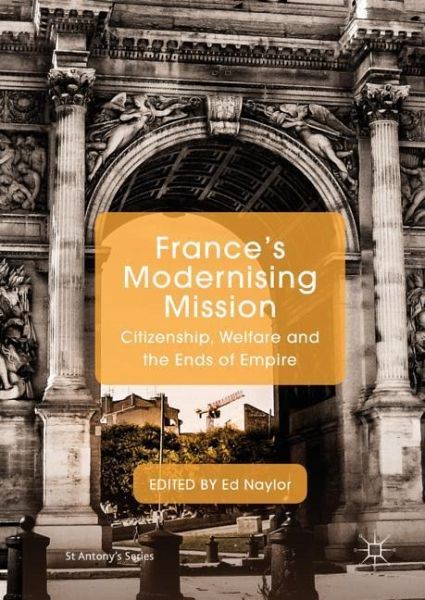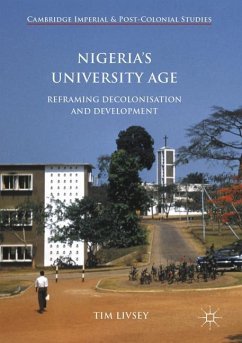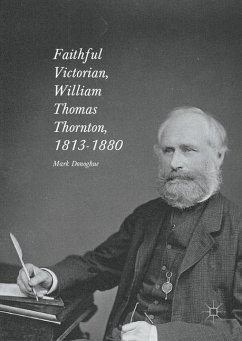
France's Modernising Mission
Citizenship, Welfare and the Ends of Empire
Herausgegeben: Naylor, Ed
Versandkostenfrei!
Versandfertig in 6-10 Tagen
83,99 €
inkl. MwSt.

PAYBACK Punkte
42 °P sammeln!
This volume explores how France's 'modernising mission' unfolded during the post-war period and its reverberations in the decades after empire. In the aftermath of the Second World War, France sought to reinvent its empire by transforming the traditional 'civilising mission' into a 'modernising mission'. Henceforth, French claims to rule would be based on extending citizenship rights and the promise of economic development and welfare within a 'Greater France'. In the face of rising anti-colonial mobilization and a new international order, redefining the terms that bound colonised peoples and ...
This volume explores how France's 'modernising mission' unfolded during the post-war period and its reverberations in the decades after empire. In the aftermath of the Second World War, France sought to reinvent its empire by transforming the traditional 'civilising mission' into a 'modernising mission'. Henceforth, French claims to rule would be based on extending citizenship rights and the promise of economic development and welfare within a 'Greater France'. In the face of rising anti-colonial mobilization and a new international order, redefining the terms that bound colonised peoples and territories to the metropole was a strategic necessity but also a dynamic which Paris struggled to control. The language of reform and equality was seized upon locally to make claims on metropolitan resources and wrest away the political initiative. Intertwined with coercion and violence, the struggle to define what 'modernisation' would mean for colonised societies was a key factor in the wider process of decolonisation. Contributions by leading specialists extend geographically from Africa to the Pacific and to metropolitan France itself, examining a range of topics including education policy, colonial knowledge production, rural development and slum clearance.














